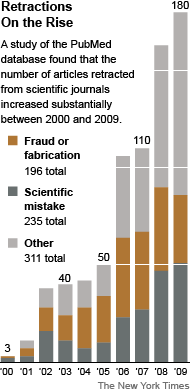InfoMail for March 31, 2002
AHRP |
InfoMail |
|
| MediaCoverage
News Stories on Human ResearchProtection and March 31, 2002 Harvard research jeopardizedthe welfare of disadvantaged Chinese people while violating federal regulations. FYI Sadly, Harvard joins the list of prestigious academicresearch institutions that have jeopardized the rights, dignity, and welfare ofhuman subjects in order to expedite highly lucrative biomedical researchstudies. The federal Office of Human Research Protections (OHRP),has issued three separate letters to Harvard University affiliated researchcenters — School of Public Health (HSPH), Brigham and Women’s Hospital(B&WH), and Mass. Mental Health Center (MMHC) as a result of "anongoing investigation." The investigation follows a complaint filed in 1999by Dr. Gwendolyn Zahner, an epidemiologist who had conducted on-site inspectionsof Harvard’s research in China. Dr. Zahner raised serious concerns about the conduct andethics of American sponsored genetic experiments which were performed onvulnerable Chinese people who were subject to coercion. Dr. Zahner raisedconcerns that the research jeopardized the welfare of disadvantaged Chinesepeople while violating federal regulations. First, is the issue of unsterilized needles that may havebeen used to draw blood, which may have led to spreading infectious diseases.Second, is the issue of confidentiality in genetic research–some involvingreproduction, others involving diseases believed to have geneticpredispositions. Dr. Zahner raised concerns about the handling of DNA sampleswith identifiable markers–inasmuch as the repressive regime in Chinadiscriminates against people with inherited medical problems. Similarly,concerns were raised about identifying information about those who–contrary togovernment edict, have more than one child. The issue of confidentiality hasserious consequences in China and should not be taken lightly. OHRP’s letters indicate that multiple violations werefound: in particular, failure to obtain institutional review board (IRB)approval for every study and for every change in the research; failure tominimize risks; and failure to fully disclose to the subjects their rights torefuse to participate without consequences–as required under the Code ofFederal Regulations. Signatures on informed consent documents raised concernsthat they were post dated: "OHRP is concerned that it appears that subjectsdid not date the informed consent documents…." The number of subjects recruited seemed to bear norelationship to the number approved by the IRB: For example, in one study,"Molecular Genetic Epidemiologic Study on Asthma", the B&WH IRBapproved the enrollment of 2,000 subjects. However, the investigator enrolled16,686. Changes were made in the informed consent documentswithout IRB approval: For example, the amount of blood drawn was changed fromtwo teaspoons to six. In some cases, Harvard officials reported to OHRP that agiven study had not been conducted, but OHRP cited recent publications in whichthe investigators described the findings of such a study. In another case, the HSPH IRB did not review an asthmastudy until three years after it had been submitted. http://ohrp.osophs.dhhs.gov/detrm_letrs/YR02/mar02a.pdf http://ohrp.osophs.dhhs.gov/detrm_letrs/YR02/mar02b.pdf http://ohrp.osophs.dhhs.gov/detrm_letrs/YR02/mar02c.pdf In December 2000, The Washington Postpublished a highly critical investigative report about the pervasive financialconflicts of interest that were undermining the safety of subjects in Harvard’sresearch in China. The following newspapers reported the news about the OHRPMarch 28 letters: Boston Globe: http://www.boston.com/dailyglobe2/089/nation/Harvard_studies_faulted+.shtml “Enrollment in the studies overseen by the Mental HealthCenter were halted because of the investigation, according to the federalletter. The studies overseen by Brigham and Women’s were completed in 1999.” Dr. Zahner told The Globe: ”With noindependent monitoring of what is happening on the ground in China, it’sreckless endangerment.” The Los Angeles Times: http://www.latimes.com/news/nationworld/nation/la-000022902mar30.story “In letters Friday to two Harvard units, the federalOffice for Human Research Protections underscored the ethical pitfalls ofworking with impoverished people in developing countries. Particularly inauthoritarian countries, these people might be easily coerced into volunteeringfor research and yet unable to afford the new treatments that result, the officesaid. The letters said that Harvard research supervisors failed in a variety ofways to make sure that the rights of research participants were protected.” The Washington Post: http://www.washingtonpost.com/ac2/wp-dyn/A38420-2002Mar29?language=printer “The forms in some Harvard-sponsored studies includedcomplex language difficult for rural Chinese families to understand, the lettersaid. Other forms reportedly did not list the risks and discomfort associatedwith x-rays and lung function tests. "Continuing review of research by [the Harvard ethicscommittee] regularly failed to be substantive and meaningful," theinvestigation concluded.” |

